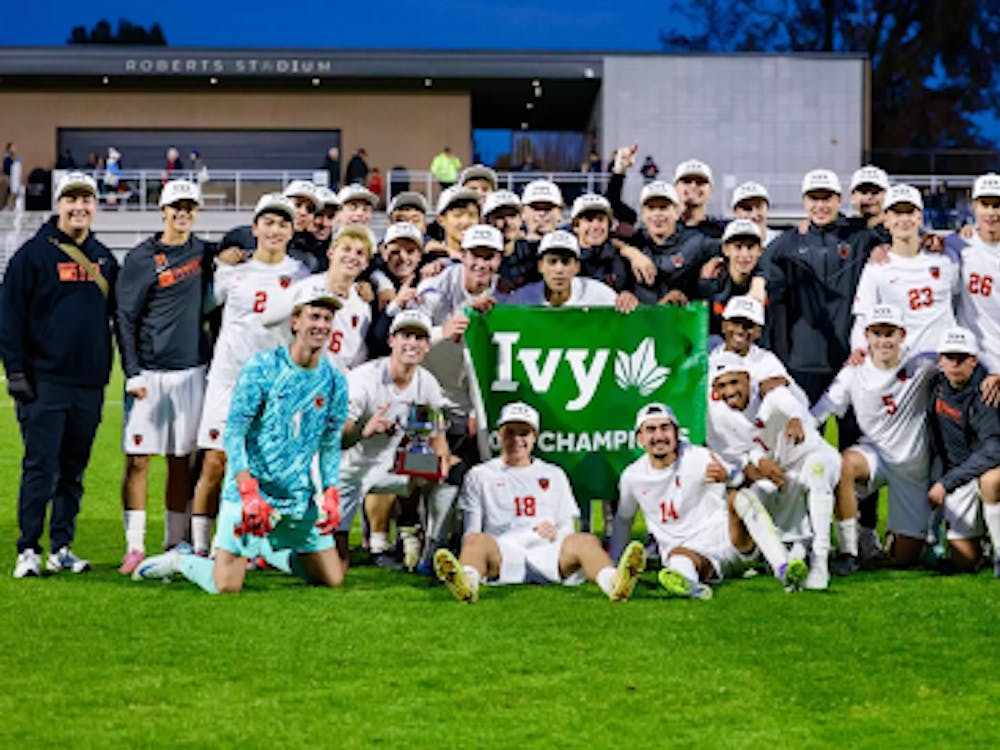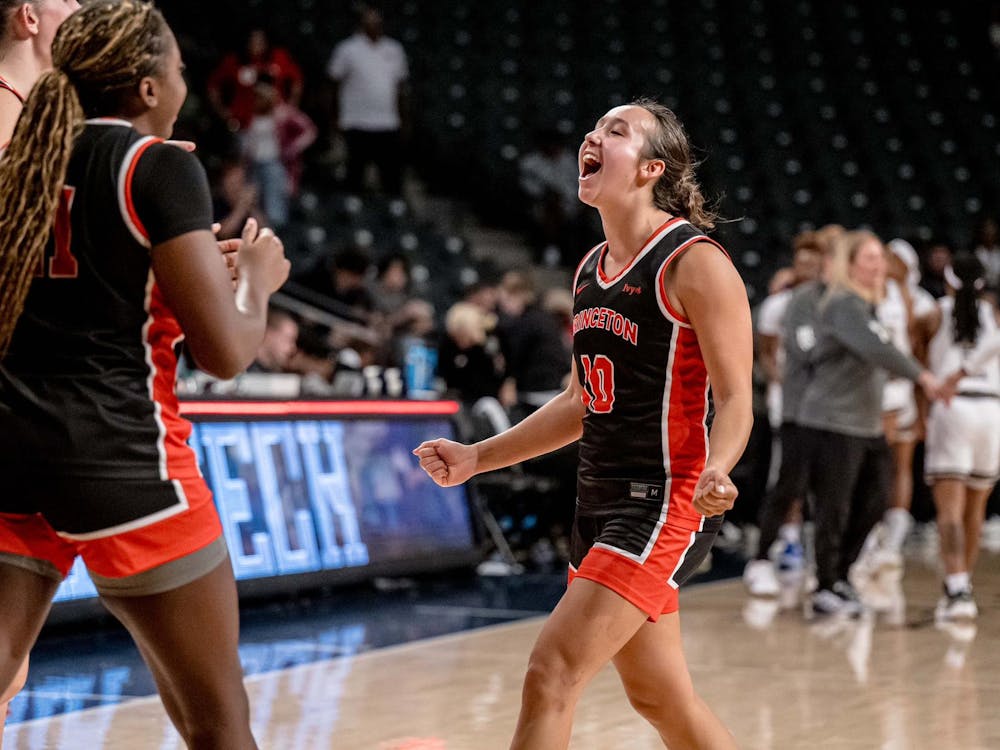The Lions (10-18 overall, 6-2 Ivy League) currently sit in first place in the Ivy League’s Gehrig Division, the spot that the Tigers must reach to accomplish their goal of an Ivy League title. Princeton (12-15, 4-4) is currently two games out of first place, but the Tigers’ only four games against Columbia are this weekend, with doubleheaders Saturday and Sunday at Andy Coakley field in Manhattan.
“They are in first, and if we hope to challenge for an Ivy League title this season, we are going to need to make up ground,” senior third baseman Spencer Lucian said. “There is no way around that fact.”
The Tigers stranded 13 runners in Tuesday’s loss to Monmouth (15-8), and the bullpen surrendered six runs in the final three innings, two things that the Tigers must improve on this weekend.
“There is an added importance when you are batting with runners on base,” Lucian said. “You have to get those runners in; that is how you win games. … We have struggled a bit in that regard this year, and it is really a matter of consistency. It’s not about guys stepping up in big situation as much as it is just improving our hitting at all times. If we can get more hits with the bases empty, the ones with runners on base will come as well.”
On paper, the Tigers top the Lions in almost every important statistic — Princeton has a better conference rank in batting average, hits, runs, RBI, home runs, ERA, strikeouts and saves.
In conference play, however, Columbia has shown an uncanny ability to scratch out wins. So far this season, the Lions have swept both Brown (12-13, 4-4) and Harvard (2-23, 1-1), and split doubleheaders against Yale (13-16, 5-1) and Dartmouth (14-9, 7-1). Against those same opponents, the Tigers are 4-4, with a sweep of the Crimson and two losses to the Big Green.
“[Columbia is] a good team,” Lucian said. “They are off to a solid start, and it is certainly going to be a challenging weekend.”
The Lions are also a very fast team. They lead the league in triples and are second in the league in both doubles and stolen bases. This will undoubtedly test the arm of sophomore catcher Jack Murphy and Princeton’s much-improved outfield defense.
“It all starts with pitching,” Lucian said of how to counteract a team with Columbia’s speed. “You have to keep them off the bases and keep their batters off balance. If our pitchers keep their hitters out of rhythm, they cannot steal. … Luckily, we have [a] really deep [pitching] staff, and Jack [Murphy] has a great arm behind the plate.”
Offensively, the Lions are led by their top three hitters: outfielders Nick Cox and Jason Banos and second baseman Henry Perkins. Perkins leads the team with a .346 batting average and five triples; Banos is tops in runs, doubles and hits; and Cox, the lead-off man, has stolen 14 bases on 15 attempts. All three are hitting above .340.
The Tigers will most likely face the best of Columbia’s starters this weekend: Geoff Whitaker, John Baumann, Bill Purdy and Joe Scarlata, who pitched a complete-game shutout of Harvard last weekend.
Princeton’s last few games have shown a team hitting its stride at the right time. The Tigers have received stellar starting pitching of late, especially from sophomore David Hale, junior Brad Gemberling and sophomore Langford Stuber, who surrendered just three earned runs in 17 total innings this week.

Hale currently ranks third among Ivy League starters with an outstanding 2.67 ERA and 39 strikeouts.
The offense, which head coach Scott Bradley called the team’s “biggest unknown” before the season started, has been solid as well. In the nightcaps of last weekend’s doubleheaders, Princeton looked dominant in scoring a combined 22 runs. Oddly enough, the Tigers combined for only three runs in the two series openers, a very misleading statistic.
“In the opening games of doubleheaders, teams tend to throw their best arms,” Lucian said of the difference between the first and second games. “If a pitcher can dominate for three or four innings, odds are you won’t even see a reliever … With these seven-inning games and better pitchers, there are not a whole lot of opportunities, so it stresses the importance of capitalizing on all the scoring chances you can get.”
Each game becomes increasingly important as the season progresses. The Tigers are mostly done with their intensive non-Ivy schedule, and what remains are 12 games against Gehrig Division opponents, beginning with this weekend’s four against Columbia to decide which teams deserve to play for an Ivy title.







